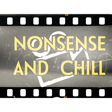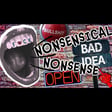Become a Creator today!Start creating today - Share your story with the world!
Start for free
00:00:00
00:00:01

Chronic Contemplations - Police Ethics
#nonsensicalnetwork #chroniccontemplations #comedy #podcast #police #137shots #ethics
Good morning all you amazing audience members! This morning Michael and Josh will be discussing police ethics, primarily concerning the "137 Shots" in Cleveland, Ohio in 2012.
Thanks for joining us! Please LIKE, SHARE and SUBSCRIBE.
Copyright Disclaimer: - Under section 107 of the copyright Act 1976, allowance is mad for FAIR USE for purpose such a as criticism, comment, news reporting, teaching, scholarship and research. Fair use is a use permitted by copyright statues that might otherwise be infringing. Non- Profit, educational or personal use tips the balance in favor of FAIR USE.
Transcript
Introduction and Greetings
00:00:16
Speaker
Good Thursday morning, everybody. It's your boy, Michael, and we've got Josh in the house for another episode of ah Chronic Contemplations. What up, Josh? How you doing, my man? How's everybody doing out there in audience land?
00:00:31
Speaker
I'm fantastic. I hope they are, too. MK says, come out with your hands up and pants down, and nobody will be hurt. ah ah I'll try to make it a positive habit keep keep comments going this morning.
00:00:44
Speaker
Oh, right on. You can, so you can say you can primarily host all the rainings or Michaels today. I'm not going lie. you You're probably going to get, you are going to see some grumpiness out of me this morning. And it's so much because of the subject matter.
Defining Ethics
00:00:56
Speaker
And that subject is the police ethics, police ethics, ethics of the police. And I like, I like to do, I'm going to start off with the definition of of of ethics. We all know what we're talking about today.
00:01:08
Speaker
Ethics, according to the dictionary, are moral principles that govern a person's behavior or the conducting of an activity. Or it could be considered the branch of knowledge that deals with moral principles.
00:01:21
Speaker
Now, being a principled man such as yourself, Josh, what is your immediate first blush thought when you think of police ethics? um They're corrupt.
00:01:34
Speaker
The biggest thing in the world. Yes, I think Currently, I think there's poor poor ethics when it comes to law enforcement. I think it's ah definitely a mentality thing.
00:01:48
Speaker
That's a broad generalization. and with That's a very broad, yes. That broad generalization, I'm going to agree. However, I think we can both also agree there are good cops out there who do good things, who behave in a moral manner.
00:02:01
Speaker
This man is going to have something to say about today's topic as a retired policeman.
Insights from a Retired Policeman
00:02:06
Speaker
i'm goingnna try I'm going to try not be the the prototypical ACAB, lefty, fucking SJW, whatever you guys want fucking leave it.
00:02:18
Speaker
Just be yourself. However, i i i liked when I look at law enforcement, um yeah, is there individual bad people? Yes.
00:02:29
Speaker
But I think in the grand scope of things, it's more of an instant. I like to judge it by the institution that it is. and how they've emerged over time and some things that can change to help better the mentality of law enforcement overall.
00:02:45
Speaker
Again, like I'm trying to come at it like more of a historical dialectical, not not I'm mad kind of situation. i'm I'm trying to be- ah fantastic topic. It's something we really sink our teeth into. and It's something think of lot the audience here.
00:03:00
Speaker
If they're here to listen, ah they know- I mean, i just I want to say that, I mean, am I mad at at some of the situations that has happened because of law enforcement?
00:03:10
Speaker
Abso-fucking-movie. I am pissed off. However, i want the audience to know that it's just not the feels I'm coming from. There's an observation. There's an analytical part of me. I'm coming at this as well.
Media and Law Enforcement
00:03:23
Speaker
I feel like the biggest ethics violations come with the, I think they call the thin blue line, right? It's us against them. You don't go against blue. For instance, if you're called to task on, well, what was the situation? You're going paint it.
00:03:39
Speaker
And when i say you, I'm talking about the literary you. I'm just speaking in a general cop sense. They're going to tell the story that puts blue on the right side of the story, whether it's actual or factual or not.
00:03:52
Speaker
Oh, yeah. Yeah, there's definitely, there's especially in the media, Mainstream media and I don't mean just quote unquote news. I say media I'm talking about like television shows like law and order and cops and all that shit.
00:04:05
Speaker
There's this heavy bent toward Cops and giving them carte blanche not completely there you some cops are brought to task but overall I think there's a lot of incidences.
The 137 Shots Incident
00:04:21
Speaker
An example, we're going to bring the 137 shots up. I think that's one where the cops got away with with we something bad and they should have gotten punished for it.
00:04:32
Speaker
Got away with murder. Murder. that Yeah. I see. But I have a hard time calling it murder. I want to. the The primitive side of me wants to. But I know.
00:04:44
Speaker
The reason why all those cops did that was because of pressures. It's the side of the pressures. What's that? Before you get too far ahead of the cart, let's tell the audience what we're talking about with the 137 shots. Yeah, go ahead.
00:04:56
Speaker
It happened in Cleveland. I believe it was 2012. Yeah, November 29th, 2012. It backfired on backfire ah vehicle. Car backfired. And what happened was a cop, but there was two cops talking outside their cruiser.
00:05:11
Speaker
And they thought they were shot at. They jumped in the cruiser, hit the lights, went into hot pursuit. Through the course of this evening, it was 11.24 p.m., so nighttime.
00:05:23
Speaker
In the course of the night, over 60 cops, 60 different police in multiple vehicles, many, many multiple vehicles, ended up chasing ah Timothy Russell and Melissa Williams for, to it was 27 miles.
00:05:39
Speaker
through the city of cleveland 22 minutes 22 minutes this uh police chase lasted at one point over 60 officers 23 miles of driving and it ended with uh timothy russell and most williams being shot over 20 times each and killed inside of their car in a parking lot of a middle school yes I have my biggest, like I said, I started watching a documentary today.
00:06:11
Speaker
I haven't watched it all, but I am familiar with the story from It's on Netflix. It's called 137 Shots. Check it out. I was especially interested in it soon when I watched it because she's in the Cleveland area most of her life.
00:06:22
Speaker
And I'm close enough to Cleveland that it's basically my backyard.
Documentary Insights on Cleveland Incident
00:06:32
Speaker
First of all, lot to say. Okay, so I want to open up by talking about Officer Luce, the guy, with the boss of those cops. And his segment in the documentary, ego he goes, this is after all the information's out. He goes, well, those cops were shot at My cops know the difference between a gunfire and a car backfire.
00:06:58
Speaker
He says this after the fact that it's been proven that his cops didn't know that And that's the mentality in which I absolutely fucking despise because at the end of the day, he looks at that case and be like, yeah, cops did nothing wrong.
00:07:13
Speaker
They made no mistake at all. They understand the difference between a gunshot and a backfire while there's evidence showing that they didn't in that fucking moment. And because of that guy in charge, nothing will change because he looks at all that entire incident as two black people did but did willfully shoot at a cop in his mind all that's what happened otherwise yeah in his yeah it doesn't matter that the evidence said a car backfired there's video documentation all of it in his head it was a gunfire and as long as he maintains that narrative
00:07:48
Speaker
He will never change.
Police Training and Decision-Making
00:07:50
Speaker
And considering he's in charge of a plethora of cops and their training, those cops will have that same mentality. And it's evident when he was in charge and 60 motherfucking cops killed two people for no other reason than a car backfire.
00:08:06
Speaker
Well, what bothered me the most about it was not only just the amount of police that, you know, joined in that chase, but as as cruisers got next to the vehicle, they could see. what she was what the What the passenger was holding was not a weapon. it was purported to be a weapon over and over again, purported to be a weapon.
00:08:23
Speaker
It was a red, what looked to be a Coke can, and they were setting it on fire. So what they were doing was smoking crack from a Coke smoking crack from a Coke can while they were being chased, which to me says not they deserved what they got at all.
00:08:40
Speaker
No, no, no. they But there was obviously a lack of mental faculties being employed by the folks in the car being chased. more i won More than one police officer reported that is not a gun. I repeat, no gun, no gun, no gun, no shots fired currently.
00:08:59
Speaker
It looks like they're smoking right now. Yet all those policemen still were involved in that high speed, very dangerous chase this through the streets of Cleveland, up onto highways, back into the streets of Cleveland. I mean, it was a wild, wild chase.
00:09:13
Speaker
Many, many, many police in that course decided, okay, this is nuts. We don't need this many police after them. um We're going to back off back off the pursuit. And I mean, more than half did the right thing, the smart thing, the the judgment call to break off.
00:09:30
Speaker
Whereas certain police, as in the ones that believed they were shot at, even though multiple reports visually by the, by the other police, uh, near the car, no gun, no gun, no gun.
00:09:44
Speaker
I want to, I want to comment on this real quick. Uh, MK, I do see why
Criticism of Current Training Methods
00:09:49
Speaker
people want to be a fleet. Because people are legitimately scared of some of these cops. Because some of these cops don't take in consideration our rights in the situation because they're allowed.
00:10:00
Speaker
and this is this hundred And this 137 shot is a good example of the excuse. Well, cops have to make split second decisions. Why are we training them? Opposite of that. Why can't we train them to make split second decisions, but responsibly like your people are capable of doing that with the right training and cognitive um cognitive training.
00:10:24
Speaker
It's cognitive training is what they need. Not, not training on how to arrest people or take them down, but cognitive thinking like to make them smarter And when they're making these decisions, these split second decisions, I've been in situations working with um explosives and dangerous stuff.
00:10:44
Speaker
And I understand split second decisions need to be made, but those split second decisions foundation built off a cognitive understanding of what needs to be done.
00:10:57
Speaker
And I've already had training to make those decisions. But so, And because cops are allowed, again, 137 shots is a prime example. Cops are allowed to gun us down and get away with it makes us fear them.
00:11:13
Speaker
This is, i hate this idea that, oh, they're, they're cops. We have to just by instinct, respect them, but they're cops. They're part of the government. They're the state.
00:11:25
Speaker
They're the state. They're the part of the government that is allowed to
Public Fear and Accountability
00:11:28
Speaker
use violence on us. The state has monopoly on violence. And the cops are the ones that get to perpetuate that violence onto us.
00:11:36
Speaker
So that, I mean, that is where the fear comes from, especially in a culture, in a country where we already have a huge mass of people that already fear our government. It's not, it's not a a huge, logical, weird conclusion to jump to that.
00:11:51
Speaker
Yeah. People are are going to be afraid of the cops. Like, obviously, I mean, But running is an immediate felony three. But I suppose if you're in legitimate fear of your own life, running is the but choice. let see That's the thing. It's like we're criminalizing human behavior.
00:12:08
Speaker
when we so When we're scared, we go into a fight a flight in fight mode. And this is so weird. We'll make that a felony three. But if a cop in the split second flight or flight mode kills someone, oh, you know, that's fine.
00:12:22
Speaker
This is a double standard here. But it's not always fine. there There are rare occasions where a policeman is held a task, he made the wrong call, and he did kill somebody unjustly.
00:12:34
Speaker
Yeah. There are proceedings, but in most cases, there are little to no criminal violations. They end up losing their job. Yes. ah Rarely do they actually see the inside of a prison or jail.
00:12:46
Speaker
A lot of times. And a lot of times, um they just get they can go somewhere else in the country and be a cop.
00:12:55
Speaker
That happens too. That comment, oh sure, just like they move around those different Catholic priests. I didn't say that. That comment that was up, that's actually a pretty decent point.
00:13:06
Speaker
This one? ah
Specialized Training Needs
00:13:08
Speaker
That one. Oh.
00:13:15
Speaker
I believe they need more categori categories of cops depending on what they are being called to. They do. They do have, like within within law enforcement, they do have different types of cops.
00:13:26
Speaker
They got swap teams. Like if you're getting called to a domestic violence situation, you should be a cop specifically trained in domestic violence. De-escalation. That type of thing. I think that's what he's saying.
00:13:38
Speaker
Okay. So in other words, like have like law enforcement, have law enforcement with other skills other than law enforcement, like social worker law enforcement, somebody that can, that has that.
00:13:50
Speaker
I believe that's what he's saying, but and I can, there are differentiated like a SWAT team is meant for breach and clear type situations. That's their job. That's what they're trained to do.
00:14:01
Speaker
They generally don't make those wild mistakes.
00:14:05
Speaker
Generally. Out of like all those 60 cops, how many cops really needed to be on that chase? Agreed. That's saying. That was my biggest problem with it. How many? I mean, that made it so much more dangerous.
00:14:16
Speaker
For everybody, even the rest of the public. Sure, that's what I mean. for Yeah, yeah oh yeah. Even if you're not involved. I mean, that's that's a lot of high-speed travel through a lot of streets.
00:14:27
Speaker
Yes. Yeah, just for something so insignificant. and Oh, yeah. You know what really pisses me what pissed me off about that documentary is when that officer Loomis goes, he's a prosecutor, not an activist.
00:14:42
Speaker
They didn't circle the car and and and you know kill these people whatever. I'm like, they did circle the car. One guy actually got on top of the hood.
Public Rights and Police Dynamics
00:14:51
Speaker
One car actually got on top of the hood.
00:14:53
Speaker
The whole, he feared for his life situation. If you feared for your life, you're not going to put yourself in direct line of fire standing on top of the roof. I mean, just like this, standing atop the roof, firing down into the windshield.
00:15:08
Speaker
That was the most excessive use of force I've ever seen. And not, that's not in the movies. i So I have, I have two things with this one. um we do have free speech. We can sit there and kind of argue with the cop a bit. There is a little, a little wiggle room there.
00:15:26
Speaker
I think a lot of times, I think the cops just not argue and be the better person. Just write the fucking ticket, throw it though in the car. I really do. Like, I mean, yeah yeah, we shouldn't sit there and argue about an insignificant speedy ticket. We spend, we spend, take the fucking ticket.
00:15:39
Speaker
I get that. I do. But at the same time, Like we're, I mean, we're allowed to confront our government. It's literally in the constitution. And if the cop wants to get butthurt about it, well, then they need to figure out a different route instead of like using that argument as a justification to hurt a private citizen. It's weird.
00:15:56
Speaker
Like I get it. I get the frustration, but the thing is like cops take a job to deal with the public. that have these freedoms. like If they're frustrated because of freedoms, then they're in the wrong job.
00:16:08
Speaker
If they're worried about getting respect or not being respected, they're in the wrong job. like I'm sorry, you're working for the government. by By that definition, you're going to be disrespected because you're the government and we're allowed to disrespect you and call you stuff and call you out, question your authority and all sorts of things.
00:16:28
Speaker
the fact that cops get all in their feelings about it is on them, not the public. there ah m We all have bad days, but we all don't have guns on our hips when we're having a bad day. that word Or tasers or pepper spray or they're always on this heightened sense of I got to get someone.
00:16:50
Speaker
And so they'll hear a backfire in a car and they'll automatically jump the conclusion that it's a gunshot. and They have to go hurt someone. They're trained to always be on this heightened sense of Everybody I deal with might hurt me, so I have to treat everybody disre but like they have to be on the offensive the entire time.
Ensuring Trust between Police and Public
00:17:10
Speaker
And that is a mentality problem. It really is. I don't think cops should walk around thinking they they have to fear everybody. That in in itself creates problems.
00:17:20
Speaker
Yeah, absolutely. If you're that afraid, maybe you're in the wrong line of work. I liked that comment, though. It was a counterpoint to what you were saying. uh, the time to argue is not at the stop. It's that it's in court.
00:17:33
Speaker
It is. it really counterpoint i agree with that. I do. But I mean, when, when, but you still have to know, like, because we're human beings and we, we have bad days too. And this is the things like we all, we, we always want to err on the side of the cops and Why?
00:17:55
Speaker
Why can't we err on the side of the citizens, the ones that are free to fuck up? You know what I mean? i don't think cops should be free to fuck up as much as they do because they are in the government. They are government.
00:18:09
Speaker
But again, it's that thin blue line. They work together yeah to cover mistakes up, to appear infallible. And I don't get what happened. wi i mean I see. I don't know. one said anything about it.
00:18:22
Speaker
just getting rid of all the cops. No one said get that. Yeah. but Yeah. Like, see that right there. I don't MK, no offense to like, I hate when people retreat to that. I'm not saying get rid of all cops.
00:18:35
Speaker
I'm saying we need a, we need a better law enforcement institution. like we need we need betterment cot mentalities We need better We do need better relationships between the public and the cops. I agree, but I don't think the onus is on the citizens to enact that.
00:18:50
Speaker
I think it's on the onus of the government to ensure the trust is built with the public. I don't think it's on us. We're the private citizens. We're the free ones. Accountability begins. It's not where accountability begins inside and outside and out through the people.
00:19:05
Speaker
And ah from an ex-cop, they don't train police good enough. It's a job everyone can make a mistake, treat everybody fairly until they give you a reason not to. It was his attitude on the on the job.
00:19:16
Speaker
Treat everybody fair. ah so Nobody's totally held accountable for it. That's not true. That's not true. Is there a lot of people to get away with shit? Absolutely. are Yeah. But there are a lot of people that are held completely accountable for the shit they do.
00:19:31
Speaker
Lately, though, some people weren't. i could I could argue you that sex traffickers get moved to low low maximum low minimum risk prisons and shit. um What's that, Michael?
00:19:46
Speaker
I'm sorry. It's okay. I just kind did the same.
Accountability in Power
00:19:49
Speaker
I'm just saying that accountability generally is not held for folks in power.
00:19:57
Speaker
They find that way to sweep it up. We are held accountable because we have no choice but to be held accountable in a court of law But I think maybe what Wally was trying to point out was so many people just aren't accountable for their own actions. They don't they don't even understand.
00:20:13
Speaker
Like one of my least favorite comments, it is what it is. It is what it is. I find myself saying it. I go, ah, why did I just say that? I hate that. It isn't what is. It is what you let it be. It is what you let it be.
00:20:26
Speaker
It's choices. Life is choices. It is what it is. It is what you let it be. Yeah. That whole phrase, it is what it is, we i was taught that in recovery through the VA that that's the way we should take life because it's, you know, ducks water off the duck's back sort of attitude. You know, it is what it is, which some situations I can agree with. I stubbed my toe. It is what it is.
00:20:51
Speaker
Cops are going around being held unaccountable for murdering people is not just it is what it is. Right. You're right. Well, you're going to have that. stopping that yeah that's the attitude that i when when we have conversations about cops i do see that attitude from people it's like then if you're gonna keep your head in the sand why are you even having this good discussion right now you know i'm talking about cops that yeah yes yes i so i want uh okay so this is just this is a this is a me thing when when i read comments that are
00:21:27
Speaker
ah that it doesn't specify a specific demographic or a specific group of people or whatnot. And it's a general like nobody or all or I hear everybody say it's like, well, I'm taking and considering every human body.
Reactionary Policing Dangers
00:21:45
Speaker
You know, like I don't do general statements like that. Talking about de-escalation. That's what I was saying earlier. De-escalation is key. Too many reactionary situations occur.
00:22:00
Speaker
Reactionary. and they're And they're allowed to and because we excuse it away with, well, they only have split seconds to make a decision because we allow that reactionary when we excuse it with that argument.
00:22:12
Speaker
No, I agree. It's because we allow. so So many standards just get left by the wayside. The 12-year-old kid who got shot in Baltimore, I think it was, maybe it was Baltimore, playing with a water gun.
00:22:24
Speaker
Yes. It was an airsoft gun, but but that's besides the point because there was a cop that killed a kid in a department store with a toy gun. was the same kind of shit.
00:22:38
Speaker
I'm sorry, if I'm a cop and I know a kid has a gun, my first reaction is not going to think, oh, it's a real gun. I have to keep in my um my mind there's other there's other possibilities, like a toy gun, a water gun, an airsoft gun, a BB gun, a fucking black stick because he's playing cops and robbers with his friends.
00:23:00
Speaker
But cops are are or taught that. everyone's the enemy. I have to shoot first, ask questions later, and I'm allowed to do and get away with it because we allow them to get away with it. I think that in the situations with children like that, when they're not complying, think about when you were 11, 12 years old, a cop's got his gun drawn on you and he's yelling at you and yelling at you. You're still trying to process what's going on right now. And you freeze like a deer in headlights.
00:23:26
Speaker
yeah You're not cooperating, you're not now following the letter of his words because you are literally in a panic state. You might not even hear what's happening. You're just thinking, oh my God, I'm about to die, I'm about to die. What
Children's Perception of Police
00:23:38
Speaker
what did I do wrong? Oh no, oh no, oh no, I'm gonna get in so much trouble.
00:23:41
Speaker
You're thinking so many other things other than I better listen to every last word he says and just comply. yeah You're freaked out and you're in a panic mode and you're stuck and you're froze and then you get shot for that?
00:23:54
Speaker
I mean, come on, man. These people don't have children their own. Never saw it children in an interaction in a high-stress situation?
00:24:03
Speaker
No. Some of these cops haven't because they're so... They come in aggroed and they're taught through people they work with through you know people they work with family members, relatives, friends that, you know, hey, cops can get what they you know. They have that split decision. You know, that's part of the job. You know, they have to make it home at the end of the day.
00:24:26
Speaker
But that is so weird that we'll give a car launch to full-grown men, adults with guns over a 12-year-old that is still not even cognitively fully developed.
00:24:38
Speaker
Absolutely. Absolutely. It is so sick. So sick. The percentage of police, I don't have the numbers in front of me, but I know it's high. The percentage of police that come directly out of military service, okay?
Military Influence on Police Behavior
00:24:51
Speaker
Do they not teach fire discipline anymore in the military? Fire discipline. One of the most important things. Fire discipline. What's fire discipline? Know your target. Know what you're shooting at.
00:25:03
Speaker
Know you have a reason to shoot. Fire discipline. this one No, nor because in the military in the military, it's not that. It's you're ordered when to fight. you're, you're given the command you're allowed to shoot or you're not allowed to shoot.
00:25:16
Speaker
Once you're allowed to shoot, you shoot at the bad guy. There's i this, like, it's like, that's, I think a problem when people come from the military into the cops, it's like, they're bringing their wartime mentality and that's a huge problem.
00:25:30
Speaker
And it's easy. when I got out of the military, when I got out of the military, a lot of people say, you can go be a cop. no no no Dude, it'd be so easy. you know, honorable discharge. All you got sign up, go through six weeks of training, fucking guaranteed paycheck, boom blah, blah, blah. I'm like, you know, nope.
00:25:49
Speaker
Nope. Didn't want it. I don't want, I never wanted to be a cop because already knew, knew, um, I had the Punisher logo.
00:26:01
Speaker
I find it disgusting that cops don't, are allowed to put that Punisher logo on their uniform and on cop cars and wave that bitch. Because the Punisher logo is from a comic book character that is the antithesis of law and order.
00:26:15
Speaker
He's an anti-hero. Yeah. He goes around killing people with no judicial, with no justice, with no no due process. He ignores the law and and he kills people.
00:26:28
Speaker
And cops are real like, yeah, I'm a Punisher. To the point where Marvel Comics is literally changing the Punisher logo. Because they're disgusted with it as well. the Marvel Comics is disgusted with law enforcement using a symbol of violence.
00:26:45
Speaker
The cops are using a symbol of violence, and they're proud of The Punisher is violent character. i mean that That's on you, Marvel. but but that's It's not on, it's not on what but but but but Marvel didn't do anything. It's the cops, real cops took a... I feel what you're saying. in and they were allowed to and they were allowed to do it because, you know, at the end of the day, this country is an authoritarian country, and I don't mean everybody in this country wants to be the boss.
Authoritarian vs. Authoritative Approaches
00:27:14
Speaker
Authoritarian, does it also means that, well, you got your followers that follow the quote-unquote the great guy theory. But they they follow, and that's what we do in this country. We either lead or we follow, and we never fucking question shit.
00:27:28
Speaker
I know I'm generalizing, but a huge swath of us are just complacent. That's how we're trained to be through the public school system, for one thing.
00:27:39
Speaker
I'm glad you brought up that word authoritarian. Authoritarian is bad. i love um It's a bad. It Authoritative is a good thing. Authoritarian versus authoritative. I'm really glad you brought that word up so I forgot that my point earlier.
00:27:54
Speaker
Authoritarian versus authoritative. The police need to function function in a more authoritative manner and stop being so authoritarian. but that's But that's the thing, Wally. The cops aren't ruining the logo. they're not they're not They are using it for what it is, being anti-justice.
00:28:13
Speaker
Because the cops that fly that shit are bad fucking cops. Because they're flying it. Asshole's a little different than what you're saying. He's pro-justice, anti-law.
00:28:24
Speaker
The law is where they get out, where they wiggle away. But justice is what comes for those that get away and wiggle out of the system. Kind of like a Dexter, but with a gun. Yeah, you know I see what you mean. But my point is because Frank Castle ignores due process and blah, blah, blah.
00:28:43
Speaker
Like ah he does. like I'm sorry. I mean, so does Dexter. He's the victim's family advocate. ah yeah I'm not saying he's wrong. I'm just saying he that's what he does. He ignores the law, and that's what cops are doing.
00:28:55
Speaker
And when cops fly that symbol, I look at that cop as, you're a bad cop. i don't care i don't care if that cop wearing that Punisher logo has never, ever arrested anybody, never given a ticket. This is his first day on the job.
00:29:06
Speaker
Piece of shit off it's awesome off the bat. Because it shows me you're not thinking about the public's version of you, but you're going to go out there and demand respect from the fucking public.
00:29:18
Speaker
That's what that tells That's disgusting. Oxymoron. Yeah. Respect. Approach with respect. Get respect.
00:29:30
Speaker
At least in in the rights and right situations, it should always be like that. But always going to have that disrespectful twat. Yeah.
00:29:40
Speaker
Oh, yeah man, this is this is a spicy convo, man. Yes, it is. I'm sorry for it. and chose I chose this topic, audience. And Blaze said, spicy. That was his exact response.
00:29:52
Speaker
Okay, let's get off the 137 shots thing. Let's move over to, let's pivot to a different thing I wanted to talk about today. And that is New York's finest taxi service.
00:30:04
Speaker
Okay, so I didn't read that article because it was behind a paywall. I didn't go through and research anywhere else. It uses art imitating life and life and imitating art.
Police Collusion with Criminals
00:30:15
Speaker
In the movie The Usual Suspects, they talk about New York's finest taxi service. If you recall the movie. It's been so long since I've seen Gabriel Byrne's character led the gang and they robbed the New York's finest taxi service. it was a cop car carrying a criminal.
00:30:32
Speaker
cutting diamonds illegally or whatever and they were his escort for the day the New York's finest taxi service providing ah cop protection to scumbags now it was depicted in the movie sure but it wasn't invented in the movie it came from real life that was art imitating life and life imitating art and recently the New York's finest taxi service just got popped again for all sorts of violations.
00:31:03
Speaker
So what do you think about that just in general, the police providing protection to criminals for a fee?
00:31:11
Speaker
It should be illegal. I have a problem with cops. It is illegal. you're inate You're in collusion to commit crimes.
00:31:23
Speaker
Well, they should hopefully they're not cops anymore. Hopefully they're in prison.
00:31:31
Speaker
I don't think that's good at all. I mean, I think that's ah sort of like a conflict of interest. I don't know. It's pretty obvious. yeah To say the least, it's a conflict of interest. But I mean, it's directly being paid by a criminal element to perform criminal acts yeah in collusion for fee.
00:31:52
Speaker
I think America reflects comic books just without the special supervision. I shit you not, dude. Like, like we got we got fucking Fisk running in the country.
00:32:03
Speaker
We got cops on the take with Penguin. I'm just saying.
00:32:12
Speaker
What's that? That's what I'm pulling up that article.
00:32:16
Speaker
The one you couldn't read. yeah i was Yeah, I didn't do any further research on it. But I think it's some i think cops doing that is definitely not a good thing. Yeah. I have a problem with cops taking other jobs when it comes to security and shit like that because I've seen – watched some First Amendment audits and cop videos shit from time to time, and I've seen where there's a cop moonlighting as a security guard, but during that – on the clock as a security guard, he decides to pull out, oh, I'm a cop too, and escalate situation.
Transparency and Accountability Issues
00:32:55
Speaker
I think that's bad. think that's horrible. Absolutely. Yeah, it's ah it's this it's it's just, it lacks transparency. Like right now, we have cops in the streets in our own country wearing masks, and they don't identify themselves. They won't identify themselves. They don't have to identify themselves.
00:33:15
Speaker
they they did they They're collecting people without warrants, so no judges are signing off. And we don't know who these people are. They were just deputized. We don't know who these private citizens are allowed to do this are, like at all.
00:33:29
Speaker
Like that's where we're at. And we're we're allowing that to happen because of decades and decades and decades of of allowing cops to get away with this shit. Now we're at the point where cops are literally in the street, masked up, doing warrantless raids and rounding people up.
00:33:49
Speaker
So the Knapp Commission, established in 1970, was to investigate allegations of widespread corruption within the New York City Police Department.
00:34:01
Speaker
ah It really led to almost nothing. In the 1970s, New York City became known as Fear City. They had the trash. And there's another one already imitating life in the first Joker movie that Todd Glass did. Todd Phillips? Todd Phillips, yes.
00:34:20
Speaker
Todd Phillips, yes. ah Reflects that. and So it was a real thing that happened in the late 70s in New York. The garbage men went on strike. Trash is mounting in the streets.
00:34:31
Speaker
Everyone was getting pissed. It was hot. It was stunk. Lots of crimes happening because it was just... and Was that the same summer of Son of Sam? got mad and just started kind of freaking out.
00:34:43
Speaker
Say it again? Was that the same time around Son of Sam when he was doing his shit? He was in the 80s. I thought he was 70. Anyway, I don't know. It was about 12 years before they finally got him.
00:34:54
Speaker
Yeah. Anyway, go ahead. Well, it's just ah a lot of things happening at the same time.
Historical Corruption in Policing
00:34:59
Speaker
And police were underpaid. And they were looking for ways to make some extra money because of all this, again, fear city.
00:35:07
Speaker
And then a lot of cops started...
00:35:11
Speaker
striking the police union began to strike here and there not city-wide but it just uh there was no money in the budget and they weren't getting paid they couldn't get raises couldn't work overtime couldn't make ends meet because new york city is one expensive city to live in if you've never been there and don't know york city is the place i've ever seen in my life i mean it's insane how much it costs there if you can't work enough and put your life online to do your job Again, I'm not saying, I'm not taking one side or the other, but a lot of factors can contribute to what happens.
00:35:49
Speaker
However, no excuses made. The New York City's taxis, New York City's finest taxi service would, yes, get paid by criminals, travel them around cities, do help them do nefarious things. so There have been cop murder clubs, sort like punishers.
00:36:05
Speaker
Well, this guy got out of it. Boom, we're going to him. They don't get caught because they're all cops. They know how to get away with murder. Well, because you also have, you ah you also have. That's an unintended consequence. It's a good thing.
00:36:18
Speaker
Get rid of these people that keep sneaking through the system or just keep taking the plea deal, take the plea deal, take the plea deal, take the plea deal. Our goddamn justice system is so crunched up and backed up that real criminals get off on next to nothing because it's the simplest way to get through the muck.
00:36:35
Speaker
Yeah. Don't build more courts. Don't put more people in charge of making this thing move. Just let it grind to a halt and keep throwing back wolves among
Improving Material Conditions
00:36:44
Speaker
sheep. Well, I think it's also improving material condition of society will actually ultimately drive crime down.
00:36:52
Speaker
It's a proven fact that that's how you get rid of crime. It's not more policing. It's better material conditions. Yeah. You give people food and shelter and stuff. They're not going to be... a desperate man will do a desperate thing.
00:37:06
Speaker
Exactly. Yeah, yeah, You make people not desperate. Exactly. um So... There is still that element, though, people going to do bad things. Because bad things are fun. It's fun to do things. I think was it i think it was LA cops or shared or something.
00:37:24
Speaker
It was a huge ah crime ring broken up with them because they were doing shady shit as law enforcement. the JCPD or whatever, the Jefferson County Police Department, the Louisville cops, around the area I'm from, they've they're under their second federal investigation right now.
00:37:44
Speaker
They were found guilty years ago for being bad cops. And it it just, it keeps, for but for civic rights violations. a lot of A lot of it stems from cops.
00:37:57
Speaker
Cops don't, aren't trained on constitutional law. They don't know our rights. They're not, some of them do. Some of them do, do care about their jobs and they have taken the time and they do learn our rights and they do respect us.
00:38:12
Speaker
I just wish there was more of those kinds cops, but unfortunately there's not because they're not. They don't have a chip on their shoulder, but they feel the weight of responsibility of their position. Exactly. Yeah. But they're not, they're not required to learn what our rights are.
00:38:26
Speaker
And I find it so weird. that the cops are not required to know the law, but we as citizens aren't allowed to use that excuse when we get arrested. Ignorance is no excuse for the law.
00:38:39
Speaker
Unless you're a cop.
00:38:43
Speaker
Whoa. It's so many double standards that they, but again, we, but at the end of the day, a lot of us will sit around and argue all those concerns away with, well, they just want to get home to their, their family at the end of the day. And, you know, split second decisions.
00:38:58
Speaker
And we just go about our day. I'm not asking for proof here. This just speculation and conversation. How much of it do you think is a mob mentality type thing?
00:39:08
Speaker
You get the gang together while everyone else is in the gang. it. All of it. All of that's why i That's why I mentioned earlier I don't want to focus on individual cops, but want to focus on the institution as a whole.
00:39:22
Speaker
Because I think it is a mob mentality. i think it's ah Because when we talk ethics, ethics – is like an umbrella for all morals or within a society or an individuals, like all my morals build my ethical foundation.
00:39:36
Speaker
And you have societal ethics, like collective ethics.
Institutional Reforms
00:39:42
Speaker
And I think that when we, you when you brought up police ethics, that's what I was thinking of, not individual ethics, but bare bones definition. You're not wrong.
00:39:51
Speaker
Right. But i'll so that's why I'm coming at it more of a, it's an institutional problem. And I think it starts with weeding out the bad apples.
00:40:03
Speaker
And I would like to see more good cops. We literally arrest a bad cop when the bad cop does the bad thing, not wait later and file a report. And maybe it goes to IA, maybe something will happen.
00:40:15
Speaker
Arrest his ass right there. Fucking blow it up. Do it. So we own this city, right? About the Baltimore police corruption. He says to the, John Bernthal, the Punisher, he plays,
00:40:28
Speaker
the lead, and he says, hey, if you don't take this, how do we know we can trust you? When they were robbing drug dealers for their money. Yeah. this is this is our you know This is our retirement. This is what we get.
00:40:40
Speaker
This is ours. If you don't take it, how do I know I can trust you? If everyone else is doing it, you got to do it too, or they're going find a way to get rid you because you're one of the good ones. I think the the hugest rub when it comes to police corruption like that is the fact that these same cops will arrest you and I, and think nothing of it.
00:41:00
Speaker
And we're locked up in the system. like They're getting away with their crimes and arresting people for crimes. Just the hypocrisy. the the the The type of piece of shit person you have to be to be a criminal and a cop.
00:41:15
Speaker
Yeah, it's duplicitous. Duplicitous at its definition.
00:41:22
Speaker
I want to address something and people are not going to like like me for this. ah when cops get shot at, legitimately shot at, I'm not talking about fucking backfires on cars, legitimately legitimately shot at,
00:41:38
Speaker
who um i I think they bring that on themselves. I hate to say that, but I think, again, the institution, the way it exists, puts those cops, like they do it to themselves.
00:41:57
Speaker
make Give me one example of them doing it for themselves. I'm trying to put you on the spot here. Okay, yeah. So when gang of cops fucking swarms a car because they backfired and chased them and fucking pop 137 shots, that's going to reverberate throughout fucking society and public and people are going to
Societal Backlash from Poor Policing
00:42:19
Speaker
be on that. So a random cruiser just rolling through a community gets popped couple shots. Pop, pop, pop.
00:42:24
Speaker
Mm-hmm. Yeah. It's, it's, it's, it's, I'm not saying that it's good. I'm just saying it's consequences of bad policing. An unintended consequence.
00:42:36
Speaker
Yes. That's fair. That's a very fair point. Yeah. That's a very fair point. I'm not saying I agree with it. I'm just saying the way that they did the institution. Yeah. No, no, no. I'm just saying it's, it's, it's,
00:42:49
Speaker
People just like those cops were out for retribution, retributive justice because that's what they did. it was a revenge shooting. The public is capable of that, too.
00:43:00
Speaker
And I find it weird that we come down harder on the public than we do the cops. And when, again, the cops are the government. So it's like, but we have the Second Amendment. They're just protecting themselves from the government.
00:43:13
Speaker
You can make that argument. It's not going to hold up in court, I know, especially if you just like walk up on a cop and do it. I'm not condoning that. Don't do Absolutely not. Okay. No, I'm not condoning that all. I needed that clarification. No, no, I'm sorry. Yeah, yeah. I should clarify. Don't do that. For legal reasons. Yeah, yeah. But it's an elephant in the room, though.
00:43:35
Speaker
It really is. Cops get attacked because cops do attacking. I mean, it's because people do look at cop, and and you said it earlier, they're a gang. The biggest You know?
00:43:48
Speaker
So, I mean, even you have that mentality, they're a gang. Well, actual gangbangers, they'll shoot at a cop. You know what I mean? I'm just saying Like, ah even even in even in your normalization, I know you're joking about cops are a big gang in a way. You're kind of joking about it, but they are. unknown But that's normalizing. thing They're the biggest gang in the world.
00:44:11
Speaker
Yeah, but that's – and it's not wrong, but it's also normalizing the idea that, yeah, cops are bad. We can shoot at them too because they're shooting at us. Like there is that mentality there. It absolutely is. I think it's that thin blue line talked about earlier, the thin blue line. They're going to stand on that line. They're defend it. It's brother and brother and brother.
00:44:30
Speaker
We know, yeah, it was a little shady, but what we're going to is make sure he's okay because he's one of us. And that thin blue line needs to go away because that thin blue line is is allowing other cops to not hold themselves responsible.
Critique on 'Thin Blue Line'
00:44:45
Speaker
And to continue bad behavior. and it And it just it compounds. Okay, sure. um You see one of your your your blue blue line buddies you know give a bad ticket, whatever. Okay, he was he wasn't speeding, but you know it was a bad ticket anyway, whatever.
00:45:03
Speaker
That's bad. You don't do anything. Well, what's next? Okay, you smack a guy around. Okay, well, ignore that. Oh, you have 137 shots. Even the small infractions we need to take. ah you we even even the small infractions we need to take take serious for these cops.
00:45:17
Speaker
They are given, they're not, punish their their punishment should be more than what the private citizen and because they are the government. Like if, if, like if I get a speeding ticket i and I have to spend $300 on that speeding ticket, well, if a cop gets the same fucking speeding ticket, you should pay fucking $600. Double.
00:45:33
Speaker
um I'm serious. You're breaking the laws. You're paid to defend. to do to Exactly. or but they don't get like it it's it's that' That in itself lets cops know, well, I can fuck up.
00:45:46
Speaker
late free Yes, they they are humans. They are allowed to make mistakes, and they're going to make mistakes. But if we allow them if we teach them that mistakes are going to go uncorrected, then...
00:45:58
Speaker
Who cares about ever learning a lesson to never make I lot of people are conflating mistakes for choices. If it's a repetitive behavior, it's a repetitive behavior. A one-time thing is a mistake.
00:46:11
Speaker
Repetitive behavior aren't mistakes. That's a habit. That's a bad habit. That's a bad habit. You're choosing to make that mistake over and over and over again because you know you can do it and you can get away with it.
00:46:23
Speaker
but We chalk it up as a bad mistake. that's ah um I know I'm going back to the documentary, but it opened up with them talking about the the initial cop. He was already somebody that jumped to fucking conclusions.
00:46:35
Speaker
They opened that documentary by saying that cop that initiated that whole thing was already known to escalate shit.
00:46:48
Speaker
He was already known to do it. Why is he still a cop? that is but I mean, if you have a reputation of escalating issues... Departmentary total fucking collusion. That's why.
00:47:00
Speaker
yeah it's like made to point oh and It was a point to prove that in multiple situations in that documentary. yeah Yeah, yes. 37 shots, it's on Netflix. Watch it.
00:47:11
Speaker
But that thin blue line protects him until... eventually loses his job. And so did five other police. Six cops lost their jobs. No charges filed.
Police as Government Representatives
00:47:25
Speaker
nuts. but then i Again, because we... I don't like looking at cops as like normal everyday people or kids or high schoolers. you know We have to give them carte blanche. They make difficult decisions. They got families they need get home to. but but No, they made the choice to do a dangerous job.
00:47:45
Speaker
I don't care. i don't care. I care about their safety less than I care about the safety of public. I do. And I say that being a veteran that put my life on the on the line. And when people will go oh, thank you for your service and bla bla blah, blah, blah.
00:48:03
Speaker
Like I chose to do that. I know in the back of my mind that I chose the potential to die.
00:48:12
Speaker
Cops make that same choice. But then we at the same time, we we we we soften up on them about it. It's so weird. i don't it's it's like It's like um we understand the job's hard.
00:48:26
Speaker
so we make it easy for them. It's weird. And sometimes when we make cops jobs easy, we're taking freedoms away from the public. And it's, it's crazy. I don't, I don't like that.
00:48:38
Speaker
It's counterintuitive. Yeah. Yeah. More training, not less freedom. There's more onus on the, on the, on the public than it is the cop and the, and in the state's the one that's got to prove their fucking case.
00:48:52
Speaker
And they're the state. But we don't treat them as as the state. It's so weird. It's like we can sit there and look at the state when it comes to ah bureaucrats and politicians, you know, presidents and Congress members and judges and all that. We know they're the state.
00:49:10
Speaker
But for some reason, when we look at cops, we kind of a lot of that mentality, we segregate them from the government. And they're literally the boot of the government. Like they're the gun holders of the government.
Federalization of Police Forces
00:49:23
Speaker
The boots on the ground. They are the boots on the ground. you They are the government. And i look at as such. I have just as much respect for a cop as I do any other politician or any other ah bureaucrat.
00:49:36
Speaker
They're there to provide a service to the public. I'm respect them on a human level. Absolutely. Anybody. But there's still their job is to the public as a government institution.
00:49:47
Speaker
Like, that's That's what they are. A cop is like the person standing behind the DMV issuing me a driver's license. They're there. They're state representative to give service to the public.
00:49:59
Speaker
If they're called 911, they're supposed to show up. I hate this. Well, if you don't like the cops, maybe you shouldn't call them. but but No, they're there to call. like That's what their job is. Their job isn't did to to escalate shit to the point where they're committing crimes.
00:50:16
Speaker
like That's not their job, but we let allow them to do it. don't think everybody can agree on that. ah Sorry, I know. I'm probably beating a dead horse at this time. Sorry, sorry. Ten minutes ago, you mentioned ah federal federal charges in Louisville, and I wanted to use that for an excellent segue into one last thing I want to talk about before we shut this yeah down.
00:50:38
Speaker
ah The federalization... of the DC police by Captain Trump. How does that rub you?
00:50:50
Speaker
Totally authoritarian totalitarian. That's totally a fucking authoritarian move. It's straight up totalitarian. God damn, I hate that word sometimes. a trip over it.
00:51:06
Speaker
Yes. I don't like it. And bring in the National Guard as well. Yeah, and and well, he also did that to to l L.A. as well and Marines, active duty Marines.
00:51:17
Speaker
I do know that he got challenged in court and got turned over rather quickly. So apparently, i think the police chief, like he totally just usurped power from the but D.C. police chief and assigned the head of the D.E.A. to it. Ridiculous.
00:51:33
Speaker
Ridiculous. Over, over, I, what the, the worst thing about it is he used a lie to do it. That's the fucked up part. Is he, the dude is sitting there saying that all these crime is way up, crime is way up when it's actually at a 30, like a 30 year low or some shit like that.
00:51:52
Speaker
Yes. The, the murder rate is at a 30 year low crime in general, a 30 year low. Yeah. So this excuse
Trump's Rhetoric on Police Powers
00:52:00
Speaker
that he used that crime is rampant and there's roaming, God, there's roaming bands of youth or something, like groups of youth or some shit like that.
00:52:09
Speaker
Like, man, his rhetoric reminds me of the depictions of the eighties that I remember seeing, but it's not like that anymore. What's that? I want to read some quotes.
00:52:20
Speaker
Yeah. Uh, it's just because what you were talking about. They've, uh, This is a direct quote from Donald Trump. he He has announced today crime emergency ah to put the Metropolitan Police Department under the administration's control.
00:52:38
Speaker
And he said, see, they fight back until you knock the hell out of them, because it's the only language they understand. You spit and we hit. They're standing there, people are spitting in their face are not allowed to do anything, but now they're allowed to do whatever the hell they want.
00:52:55
Speaker
Direct quote directly from Donald Trump. And you give cops that kind of power and and they're already allowed to mask up. i'm just like We were already living in a police state.
00:53:07
Speaker
This has just become an increased police state. It's not good. It's not good at all. Civil rights groups and legal experts fear the presidency remarks will embolden police officers to abandon constitutional guardrails and signal to Americans those protections are meaningless. And I think that exactly sums up and what those comments do.
00:53:30
Speaker
Exactly sums what those comments do. We already have cops that have abandoned constitutional rights. but buy any This is a, like you said, the institution. This is the institution saying, do that.
00:53:43
Speaker
That's what we need. That's what we need. we and that just And that's just not the cops in D.C. That's cops around the country that's going to hear shit like that. and And you got your cops that are a supporter of his, and they're going to hear that and do what they want.
00:54:01
Speaker
He's signaling also that therere he's got plans to do this in other cities in America as well. Federalize the police. Chicago's been brought up. think St. Louis has been brought chicago's been brought up i think st louis has been brought up
00:54:17
Speaker
Yeah, there is. there's There's plans of it.
Unchecked Power in Institutions
00:54:20
Speaker
and This is playing exactly into that scenario that you've been discussing the entire time we've been talking today.
00:54:27
Speaker
Institutionalized allowances to just go hog wild. Don't worry about repercussions. It's like all those years, all those decades before, we've we've softened up so much on keeping our law enforcement in check that we've allowed them to to go unchecked, and this is what's happening now.
00:54:50
Speaker
This whole, well we this is because we don't respect the cops, or this is because the cops don't respect us.
00:54:58
Speaker
Anyway, i think I think we've lost like most of our viewers this morning over this topic. but it it It is what it is. It's something i wanted to talk about, and if you didn't like it, i like it it's I thought it was a good conversation, and I think that it's ah a real social issue.
00:55:17
Speaker
And we had a conversation that was serious and we talked about it in a serious manner. And I think that it's only fair to voice these opinions. if you If you feel passionately about something, say something about it. If you're not, you keep to yourself.
00:55:30
Speaker
You cannot enact change. Someone wise told me that. I can't remember his name. I don't know. All I'm saying is never be a scared ah to question authority. Authority isn't always wrong, but it isn't always right.
00:55:42
Speaker
So never be afraid to question authority. The Constitution gives us the right to do. And yeah too many people died in the military fucking preserving that right. So please, I don't care if you if if your best friend's a cop, you can still question them when they have that badge on.
00:56:00
Speaker
If they tell you different, maybe they're not they're not the friend you think.
00:56:05
Speaker
And again, broad sweeping generalizations aside, we were only doing that for conversation's sake.
Public Perception and Media Influence
00:56:10
Speaker
I'm not a cop hater. I think that police do definitely have a place in society and they are a necessity for you know public peace.
00:56:20
Speaker
But be for public peace is all I'm asking. Before we go, i I don't want to just bitch and gripe about the problem. I'd like to talk about solution solutions. Solutions.
00:56:33
Speaker
Yes, because I don't like being that lefty that just bitches and cries because I think those are liberals. So anyway. um
00:56:43
Speaker
Yes, I took a dig at liberals. People, be aware. See, I do that. I take digs at liberals too. Anyway. hum
00:56:52
Speaker
I got to find that balance, right, guys? Anyway, um I would like to see policing be more of a... oh community effort.
00:57:05
Speaker
I think, I think, um, I'm not saying just totally go away from all governmental representation of law enforcement right now, but I think we need to, to scale back on state police and scale up community policing in a, in a, um, um, um, collaborative way.
00:57:27
Speaker
I think, I think cops need to be held accountable through, um ah community boards of oh of observations, not just the judicial system.
00:57:41
Speaker
I think because ah you have attorney ah district attorneys and stuff working hand-in-hand with the cops, we need to take that out of the equation or soften that and bring the community in to policing the policeman.
00:57:57
Speaker
um That's ultimately what they're there for. They're there for us, and if they're not treating us right, then we as community have more saying I know some communities do have more community boards that do oversee policing, and there is some positive results in there.
00:58:14
Speaker
Civil complaint oversight. Civil complaint oversight. Yeah, that's such a better fucking phraseology. Thank you. I just came up with it myself. Nice. hey that rounded up what I was trying to package up. I like it. I like it.
00:58:29
Speaker
Going right against my professional idiocy.
00:58:34
Speaker
No, I think I'm not going to like you and your comments earlier are exactly why you should be a policeman. You don't want to be. You don't want to be a policeman. You don't want to.
00:58:45
Speaker
You don't want to have to do that. That's why you should do that. Because you'll take the responsibility on and do it responsibly.
Community-Based Oversight
00:58:52
Speaker
The people who don't want job would be the best at it. Unless they're just trying to get out of it purposely, but you're not that person.
00:59:00
Speaker
I'm afraid I'd killed by another cop. A policeman generally shouldn't be policeman. And that's a broad generalization, sure. But I think there's a lot of truth behind that. If you if you're gung-ho about getting that cop position because you want to be an enforcer of the law, you're not the right person for the job.
00:59:18
Speaker
How about this? instead of Instead of cops hiring just cops, they hire people with with consciousness to help cops make decisions.
00:59:30
Speaker
like um community. I'm trying to bring the community because I know what you're saying, but somebody in my position would probably end up getting killed by fellow cops or framed or something. I'm just saying because of who I am.
00:59:47
Speaker
Yeah. had I don't know that that mom mentality I'm talking about people that would normally not do something like that will because at some point it becomes a fear and or a stigma inside. ah You're creating a hostile work environment for yourself.
01:00:04
Speaker
You're the only gay guy coming out. You're going to get hustled by everybody. They're all going to harass you. You can't come out as a good cop because they're all going to harass you for it. Yeah. Don't get me wrong. though you're You're not one of us. You're one of them.
01:00:19
Speaker
and it's us and them is a bad mentality to begin with. That mom mentality has got to change. Yeah. I think there is, see, you, you tease down a point and this doesn't just go for law enforcement. This goes for, for just, I'm just expanding this to our country itself.
01:00:39
Speaker
We have this, this, this, this composure or this, this, um, this way about us where we we don't want to quote-unquote rock the boat. We don't want to be able fly in the ointment. So if we see stuff bad collectively, we don't want to be the guy to point it out because we don't want to be scolded ostracized or any of that sort.
01:01:02
Speaker
So we just go along with it. Well, that's... Go ahead.
Media Portrayal of Police
01:01:09
Speaker
go ahead Life imitating art, right? Who doesn't love a heroicized bad cop?
01:01:17
Speaker
Dirty Harry Callahan. What a great cop, right?
01:01:22
Speaker
Heroicizing that character. You're supposed to be talking about solutions, not getting me going down a whole tangent about copaganda. Maybe stop romanticizing it.
01:01:34
Speaker
Oh, that's copaganda. Law and order, cops, old cop, even cop movies today. Law and order, they're not suppressing evidence. They're not shuffling things to the side.
01:01:45
Speaker
They're doing the work, and they're doing it responsibly. So good be if i if i set if I sat down and watched Law and Order with you, I could pick out ah ways that the cops on that show are breaking the law.
01:01:57
Speaker
well yeah it's um it's it's more it's more so It's more subtle. It's more subtle, but they do. Especially when it comes to the prosecution of some of these cases.
01:02:08
Speaker
but Somehow it's how they fight to to exclude Ritz and Habeas Corp. The whole show is Dick Wolf is a very pro-cop guy. He is very pro-cop.
01:02:20
Speaker
It's made him a lot of money. Oh, it has made to him a lot of money. That's why I have a problem with iced tea, too.
01:02:28
Speaker
we When he started, ah I don't even want go down that right now. Don't then.
01:02:35
Speaker
That's a discussion for another time. There are a plethora of answers. The thing is, in the long run, do you really see it being a thing?
01:02:46
Speaker
What's that? Find a reason not to do it. like this Like the citizen's complaint to oversight. man.
01:02:54
Speaker
i am that well It will cost too much to do it. What if it's a volunteer citizenry? so Here's the thing with us. We don't change much. we're we're We're going down a trajectory that's going to worse, but it will get better because it's going to hit a wall and we're going to collapse.
01:03:10
Speaker
I'm not saying as a country, but we're going to collapse as a society. We're going to rebuild and we're going to look back and at the problems we had, like over policing. We're like, we're not going to do that.
01:03:22
Speaker
I think I think changes will come, but it's going to get worse
Challenges in Implementing Change
01:03:26
Speaker
before it gets better. and I i hate ah hate to sound like the the the cynic here, but humans don't change.
01:03:34
Speaker
We don't. if you if you look If you look throughout history, like human the human race itself is fucking bipolar. There's
01:03:47
Speaker
um only one thing we do consistently, and that's kill each other. Yes.
01:03:52
Speaker
And that ultimately, I think where we're at, we're not going to see. We advise new and clever ways to do it. But yeah, that's that's my opinion on that. We're not going to see the change we want.
01:04:06
Speaker
It's going to get a hell of a lot worse before it can possibly get better. Because people have to fuck up. Too many people are willingly asleep at their wheel.
01:04:17
Speaker
Because relatively speaking, I didn't know my camera just died. Relatively speaking in this country. thought that's the longest drink ever. i know. Relatively speaking in this country, I mean, I like the joke. We're a third world country wearing a Gucci belt.
01:04:29
Speaker
But we we are a wealthy country enough to where we're complacent because of our comfortability. Relatively speaking, we don't have it bad.
01:04:40
Speaker
But relatively speaking, because we have it so easy, we've given up so much of our rights, so much of our freedoms. right ah like we have the freedom to stand on a public sidewalk and take pictures.
01:04:53
Speaker
But so many people think that's illegal that you'll get you'll get the cops called on you, you get shit thrown at you, you'll be cussed at, flipped off, and all that stuff. And sometimes the cops don't know and they'll show up and arrest you because you're causing a disturbance when you're not doing anything disturbing except exercising your First Amendment right. that's That's in which society society we live in.
01:05:19
Speaker
On another show, we're going to go over some of those videos you like to watch with the police cams.
Cost of Bad Policing
01:05:24
Speaker
First Amendment Audit? you know that's actually something that's That's actually something I've been wanting to actually engage in is First Amendment Audit.
01:05:38
Speaker
it can be lu It can be very lucrative if you if you find that right bad cop. I'm just saying.
01:05:48
Speaker
the same and they This is what I want to point out. The bad policing. Ultimately, we taxpayers pay for it because when these cops go through courts being bad cops and they pop these plea deals and sediments,
01:06:00
Speaker
Guess who pays for that? It's not the cop. It's the city from the taxpayers. So ultimately, the taxpayer, it's beneficial for the taxpayers to want a better police system. So it costs us less money in the long run.
01:06:13
Speaker
These bad cops cost us taxpayers money, just not on top of their salary, but that on their bad policing and settlements because they, I mean, some of these people have gotten multimillion dollar settlements because a cop doesn't understand our rights.
01:06:30
Speaker
I'm just saying. Look at it from a fiscal lens. How about that for solution?
01:06:38
Speaker
Anyway. It makes C-E-N-T-S.
01:06:46
Speaker
and That, I think, is as good as any way to shut it down. My God. that was that was i would' I would say fun, but it's not because it's so depressing of a topic, really.
01:06:57
Speaker
And it's so heavy. We don't try to make it too, too heavy, usually.
Closing Reflections
01:07:01
Speaker
But it's one i know I knew you would want to talk about it. And I find it. I'm i'm actually pretty passionate about it myself. You know what wasn't heavy?
01:07:08
Speaker
My soapbox. I dragged that bitch that stood all on it. with
01:07:15
Speaker
But you made a lot of sense today. Thank you. Thank you. Hopefully other people can see it, too. Hopefully you guys can see through my manic. Thank you, please. thats that wasn't That wasn't the message today.
01:07:27
Speaker
It was love the police, and especially if they do their jobs well and the correct way and in a moral way and an ethical way. Tune in tomorrow night, Friday, 8 p.m.
01:07:42
Speaker
What's coming soon? of Nonsense and chill. Yeah, we got some trailers to go over for next month's movie. I didn't realize that.
01:07:53
Speaker
I know. This month has been crazy for me time-wise. Well, the rest of the mountain, and now we're flying downhill toward the wedding, so every day it's just's flying by. We're 30 days away, dude. 30 days.
01:08:05
Speaker
I know. I'm so freaking excited to get hang out with everybody, celebrate Michael's wedding, and stuff. It's going to be a blast, and and there's some Big Mac tacos in
01:08:21
Speaker
Thanks for watching, everybody. This has been another episode of Chronic Contemplations with Josh. Or Blaze. And me, Michael. Thanks, everybody. Appreciate you.
01:08:32
Speaker
Tune in all week long to the Nonsensical Network. We got a lot going on. Check us out. Like, subscribe, share. We didn't do that once today. Boom. Like, subscribe, and share.
01:08:44
Speaker
Why? Because nine out of ten grandies approved. Yes, they do. Grandma's. Thanks for everything, everybody.
01:09:05
Speaker
Nonsensical network, different flavor every day. Movie talks, new flicks, hitting the display. Microphone magic, musicians spill the praise. From reptiles to motorsports, burning rubber craze. Football crashes, touchdowns, epic plays.
01:09:19
Speaker
New spinning, catching on the latest phase. Bleaming cars, engines throwing up the pace. Street tales, word and story.
01:09:57
Speaker
but the vibes just right tune in tune in wait for that beat
01:10:08
Speaker
always on repeat

















